
What Happens if You Steal a Car as a Minor?
It’s a serious matter to commit vehicle theft as a minor in Philadelphia. The legal process and consequences differ compared to how courts deal with adult theft of a vehicle. It’s important to understand this difference and how you can seek legal assistance if you get charged with vehicle theft.
Vehicle Theft by a Minor
When a minor steals a vehicle, they may not be charged as an adult. They aren’t going to end up in the adult system if they are under the age of 15. They also won’t go through this system if they are 15 years and older and haven’t been adjudicated for robbery of a motor vehicle and didn’t use a deadly weapon during the robbery. It may be considered a delinquent act and they will have to go through juvenile court proceedings. This designation is used in matters that would be considered a crime if an adult committed the same act. The only difference in outcome is that the minor would be adjudicated delinquent instead of convicted of a crime.
Juvenile Court Proceedings
First, an attorney or probation officer would have to file a delinquency petition with the court. This needs to state in clear terms the charges against you as well as detailed information about this act or incident. It should state whether you need rehabilitation, supervision, or treatment.
While this isn’t all that common, it is possible to avoid the court process. A probation officer or some other court officer can determine if it’s best that you have an informal adjustment of charges. If you comply with any terms you’re given during this time (which usually is around six months), the petition and charge can be withdrawn, there won’t be a finding of guilt, and you would have no juvenile record of this charge.
It’s possible to have your court process suspended if both parties agree to a consent decree. This is an agreement that’s made by all parties regarding the supervision of the minor child in their own home. They will need to follow specific conditions that the probation officer gives them. You can only get a consent decree if you’ve been adjudicated delinquent. They can expunge the adjudication after you’ve completed the conditions within the set amount of time.
The adjudicatory hearing is similar to a trial and it’s held to inspect evidence regarding whether or not you committed the offense that’s within your charge. The judge listens to evidence from witnesses who are on both sides. At this point, they’ll decide if the prosecution has proven that you committed the act(s). If they decide to adjudicate your delinquency, they’ll also decide at this time if you require rehabilitation, supervision, or treatment. If you are given an adjudicatory hearing and are found delinquent, you may be moved ahead to a disposition hearing for discussion of what type of rehabilitation, supervision, or treatment is best for your situation. The court reviews this disposition at least every six months.
Get Legal Assistance for Vehicle Theft by a Minor
Vehicle theft by a minor can be a complicated case. You would do well to seek the assistance of a criminal defense lawyer in Philadelphia to assist you with your case. Contact Brennan Law Offices today to talk to one of the best criminal lawyers in Philadelphia.
Read More
Do I Need To Disclose If I Am A Registered Sex Offender?
Did you get arrested and convicted of a sex crime? If so, there are specific steps and procedures you must undergo upon your release from prison. So, do you need to disclose if you are a registered sex offender? Keep reading to find out what you need to disclose to the public and potential employers.
Sex Offender Requirements
When a person is a convicted sex offender, there are requirements they must fulfill upon their release. Sex offenders must report any of their status changes to local authorities. Depending on the state you reside in, there are a specific number of days in which a sex offender has to report their change of employment, address, or other similar circumstances.
You’ll also likely need to appear in person with a driver’s license at the designated local courthouse, driver’s license bureau, or other designated official government location to complete paperwork and notify them of your status update.
In some instances, your neighbors will be notified of your status, especially if you are moving into a new neighborhood. If you apply for employment, you must disclose your sex offender status. This is especially true if you plan to work for any position dealing with the public.
Restrictions Sex Offenders May Encounter
Registered sex offenders usually have restrictions on where they can live and where they can work. Most sex offenders are prohibited from working with children or at-risk adults with disabilities. They are also usually prohibited from holding a public office or working at a government facility.
Additionally, each state may have restrictions on specific jobs that sex offenders may not work, such as tow truck driver, ice cream sales, or other service-related occupations.
Requirements for Philadelphia Sex Offenders
Sex offenders living in Philadelphia are classified into tiers. These tiers dictate how often the offenders need to report to their designated check-in location. For tier I, the offender must go in person to check once per year. If the offender is a tier II, they must check in person twice per year at the designated locations.
Additionally, residents of Philadelphia who are sex offenders must adhere to the requirements of Megan’s Law. That means there must be official notifications to employers and residents in the area where they plan to reside. This measure is designed to protect locals, especially children and at-risk adults living in the vicinity of the sex offender.
If you are currently supervised by a parole officer or other court-appointed official, you must disclose your status to your employer. However, you are only legally required to notify your employer of your status if you have supervision or parole.
Considerations
Convicted sex offenders must know and comply with state and local laws regarding their status. There are specific laws and regulations in place for each state, so be sure to know the guidelines in your location. Additionally, sex offenders need to keep local officials updated regarding any changes in their status in terms of employment or a change of residence.
If you or someone you know needs a Philadelphia sexual assault lawyer, contact the professionals at Brennan Law Offices. We can provide a complete range of legal support and options to anyone in need of guidance and professional services.
Our experts are dedicated to offering the residents in and around the Philadelphia area top-notch legal services they can count on when they need it most. Reach out to the best criminal attorney in Philadelphia. Find out how to get started today by calling or stopping by our offices.
Read More
What Happens When You Violate a Restraining Order
A Protection from Abuse Order, also known as a PFA or a restraining order, is designed to protect certain individuals from those who are deemed threats, whether it’s to their physical health or to their mental health. But while PFAs are an excellent way to discourage these behaviors, they’re not going to stop someone who wants to make contact from making contact. With that in mind, what happens when you violate a restraining order in Pennsylvania? What are the consequences? Let’s take a look at what happens when you violate a restraining order and what you can do if you find yourself in this situation.
Violating a PFA: The Immediate Penalties
Like anything else, violating the terms of a restraining order is going to come with immediate penalties that you’ll want to know about ahead of time. There are two types of penalties in Pennsylvania, each of which will be delivered depending on the unique circumstances of your case. If you’re found guilty of criminal contempt for violating your restraining order, the first penalty is having to spend up to six months in jail and pay a fine of anywhere from $300 to $1,000. The second penalty is six months probation on top of a fine of anywhere from $300 to $1,000.
There may also be additional actions taken depending on what you’re found guilty of. For example, if you indirectly violate the restraining order placed against you, the court may decide to extend the restraining order. You could be found in contempt of court in this situation and jailed without trial by jury. The person who has placed the restraining order against you can also file a petition for civil contempt, which carries the same potential jail time.
With the above in mind, it’s important to know that these are just the immediate penalties and consequences of violating your PFA. There are other more severe and longer-lasting consequences that you will need to be aware of too.
Additional Consequences of Violating a Restraining Order
Violating a restraining order can result in much more than probation and jail time as well as a small fine. Some of the other consequences that come with violating a PFA include:
- A potential suspension of your driver’s license.
- The suspension or revocation of your professional or occupational licenses, alongside potential long-term professional image damage as a result of violating the PFA.
- Issues moving forward with your immigration or citizenship application.
- An impact on cases that are of significant importance to you, including child custody battles and divorces.
- Damage to your personal reputation.
- Difficulty securing future employment.
- And beyond.
Restraining orders are in place for a reason, and when you violate a PFA, you put yourself in a position where you could face significant penalties and life-changing outcomes. The good news? No matter what the reason may be for why the PFA was requested or what actions you took that violated the PFA, you are still able to get your bearings. A Philadelphia assault lawyer can help you figure out what you can do moving forward to mitigate the damage caused so far.
Defend Yourself and Your Rights With Brennan Law Offices
Violating a PFA can be serious, and you need someone on your side who is able to help you navigate your life moving forward, providing you with the best possible defense and counsel. The experienced lawyers here at Brennan Law Offices are dedicated to supporting you during this time. Whether you’re looking for domestic violence lawyers in Philadelphia, contact us today so we can learn more about your situation and how we can help you.
Read More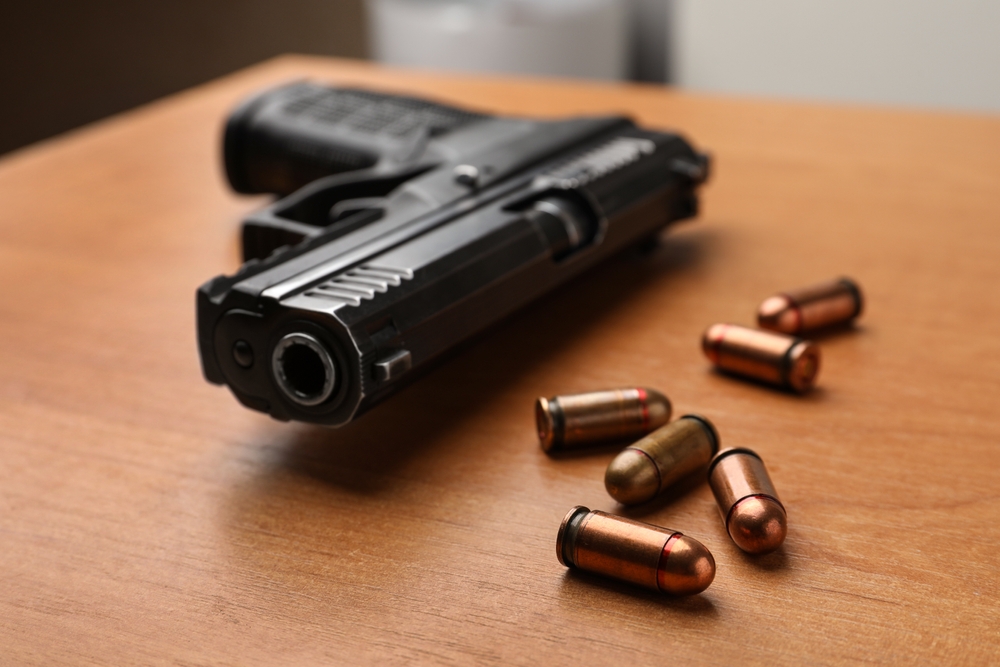
Pistol Whipping: Assault Or Gun Charge?
For most, breaking the law is a relatively straightforward thing. For example, if you’re driving over the speed limit, you’re speeding. But there are other situations where the law being broken might not be so clear. Additionally, some cases might present multiple broken laws where multiple charges can be applied. Take, for example, pistol-whipping. Is it a gun charge or an assault charge?
Firstly, What Is Pistol-Whipping?
Not all gun violence comes in the form of shootings. Guns can be wielded as a sort of melee weapon instead. Pistol-whipping involves using the butt or the sides of the gun as a blunt weapon, often hitting the head of the victim to stun them or to knock them out. It’s easy to see why one might be confused as to what charges might be brought up in this situation, which is why it’s important to evaluate it further.
What Type of Charges Might Be Filed in a Situation Involving Pistol-Whipping?
The first thing to address is the potential gun charges that might be filed as a result of having a firearm involved in the incident.
Did you have a firearm on you that you did not have a permit for? If so, you’re likely looking at a third-degree felony. Simply having a firearm on you that you don’t have a permit for is already a first-degree misdemeanor. However, when you commit another criminal offense on top of not having a permit for your weapon, you elevate it to a third-degree felony, for which you could face up to seven years in jail and/or a fine of up to $15,000.
But what about charges related to the actual crime itself? Unfortunately, adding the gun to the situation only puts you in a more difficult situation. Pistol-whipping someone can result in a charge of aggravated battery with a deadly weapon. Aggravated battery involves doing something like hitting someone, which is a misdemeanor at most. However, when you hit someone with a deadly weapon, you can be looking at a first or third-degree felony.
As you can see from the above, multiple charges may accompany your use of a weapon in an illegal manner, which can make things complex for those looking to understand how it might affect them.
What Do I Do Moving Forward? Brennan Law Offices Is Here to Help
So, you are concerned about what charges might accompany pistol-whipping someone else. What’s next? Here are a few steps to take:
- Look for the best criminal defense lawyer in Philadelphia that you can find. They’ll evaluate your case and let you know what to expect, what to do moving forward, and how they’ll work with you to defend you in the future.
- Be honest about everything with your lawyer, and be careful what you say to law enforcement. Lawyers are unable to give you the best possible support and leverage their years of experience if there’s something you’re hiding that could come up in a court of law later. Always be straightforward and give them the full scope of the crime and the circumstances surrounding it.
- Are you someone who’s looking for support to get your records expunged? Let’s face it; everyone makes mistakes. Unfortunately, pistol-whipping can have repercussions that affect you long after the incident itself. See if, instead, you can find the best expungement lawyers in Philadelphia to work with who can help you get back to the life that you wish to lead.
Whether you need expungement support or a criminal defense lawyer, we here at Brennan Law Offices are ready to defend you. Contact us to schedule a meeting with one of our attorneys now!
Read More
What Happens If You Are Being Charged with Harassment?
Being charged with harassment in the state of Pennsylvania is a serious offense that can come with jail time and fines if you’re found guilty in court. A conviction of harassment can make your life more difficult when it comes to finding housing and employment. As experienced domestic violence lawyers in Philadelphia, we understand how a harassment charge is handled in the courts and provide you with an effective defense. Read on to learn more about being charged with harassment and how a lawyer can help.
How Harassment is Defined Under the Pennsylvania Criminal Code
The Pennsylvania Criminal Code Title 18 Sec. 2709 considers certain actions to be harassment. The actions can be physical or virtual, and consist of the following actions:
- Repeated communication whether being told to stop or not.
- Threatening to physically contact another individual.
- Striking, kicking, shoving, or other forms of physical contact with another individual.
- Following or stalking someone in one or more public settings.
- Repeated anonymous communication.
- Sharing lewd or threatening words, drawings, spoken language, or caricatures of another person.
- Communicating at inappropriate or inconvenient times.
- Repeated communication in one form or another.
Penalties for Harassment Charges
Harassment charges are classified as summary and misdemeanor. A summary charge is a minor classification and carries a maximum sentence of 90 days in jail and a maximum fine of $300. A misdemeanor charge comes with a maximum sentence of one year in jail and a maximum fine of $2,500. There are several influencing factors that go into the severity of the charge, and they can affect the outcome of your case. Some of the influencing factors include:
- The type of behavior you were engaging in at the time.
- The length of time you were engaging in the behavior.
- Any previous offenses for related or unrelated issues on your record.
- The previous offenses are related to harassment or not.
The penalties are just part of the reason why you need to retain an attorney, especially if there’s a sexual component in the harassment. A sex crime defense attorney in Philadelphia can develop a defense on your behalf and look for weaknesses in the case that can go in your favor.
Call the Brennan Law Offices Today for Help With Your Case
Everyone is entitled to have their case heard in court and defend themselves against a criminal charge. At the Brennan Law Offices, we’re here to help our clients preserve their rights, especially when they’ve been charged with a serious crime. Our team of criminal defense attorneys is ready and able to give you the time and attention your case deserves.
You don’t have to accept your fate, no matter if you’re charged with harassment or another serious criminal charge. Contact us at the Brennan Law Offices to schedule a consultation and talk to us about your case.
Read More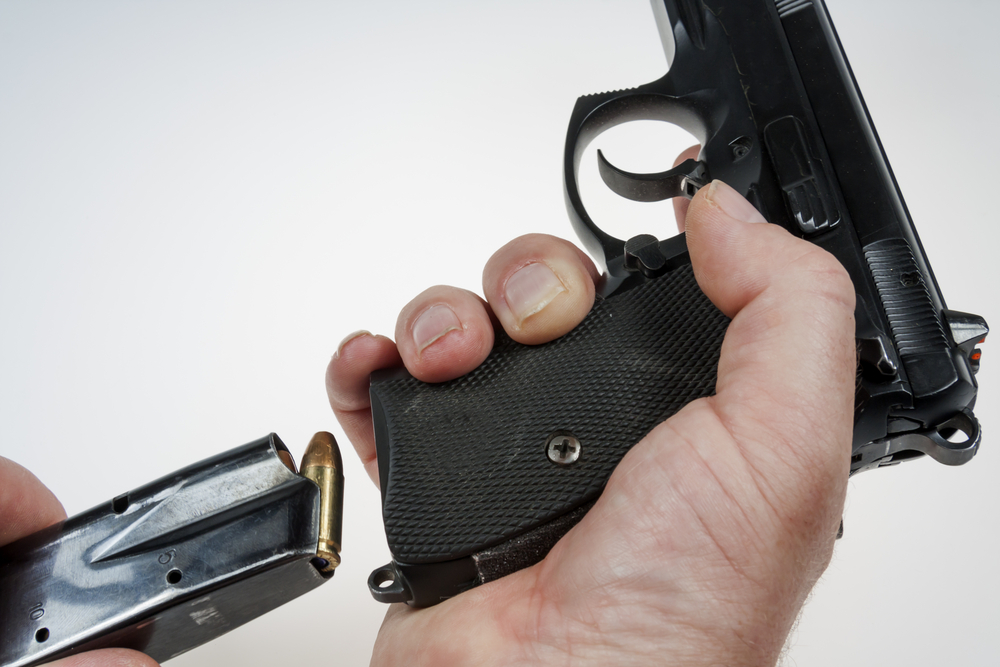
Assault Charges & Weapons Charges: Can You Receive Both?
The right to own a firearm is a right protected by the U.S constitution, but it has its limitations. Using a weapon to inflict bodily harm on purpose to another person amounts to an aggravated assault charge. Other common types of assault include sexual assault and simple assault, whereby you injure someone without a weapon. Both assault charges and weapon charges are serious offenses requiring a reputable attorney’s services. Here’s what you should know about these two charges.
A Background On Assault Charges
Assault charges can either be simple or aggravated. You’ll face an aggravated assault charge if you intentionally harm another person physically. Such charges will also apply when you recklessly cause bodily injury using a deadly weapon.
Unlike aggravated assault, simple assaults usually involve actions that don’t rise to the felony level of aggravated assault. They include acts like bar fights, street fights, sexual assault, and behavior threatening such actions.
If you’re faced with an assault charge, particularly sex assault, working with a reputable Philadelphia assault lawyer increases the chances of beating your case. Such experts offer invaluable help as they can put a strong prosecution case based on defenses like mistaken identity, false accusations, etc.
An Overview Of Weapons Charges
Weapon charges apply if you possess a firearm without a license. You may also face this charge if you use a dangerous weapon or body armor to commit a criminal act. Having a firearm or a deadly weapon in a school is considered a second-degree felony, so you’ll face weapons charges.
Depending on the severity of your offense, you could face up to 20 years in jail. That’s why when faced with such a charge, working with a Philly criminal defense lawyer with experience representing individuals with weapons charges is essential. Undoubtedly, this is the surest way to receive the best outcome in your case.
How Do Assault & Weapon Charges Compare?
Assault charges and weapons charges are different but with some distinct similarities. For instance, when accused of a first-degree felony on both charges, you’ll face up to 20 years in jail. A second-degree felony carries a maximum of 10 years of jail time. This is different from a misdemeanor charge. In assault charges, you’ll face up to 1 year in prison for a third-degree misdemeanor and up to 2 years for a second-degree misdemeanor. As for weapons charges, they carry a maximum of five years imprisonment for misdemeanors of the first degree.
It’s also possible to be accused of both charges. This happens if you use an illegal firearm to cause bodily injury on purpose to another person.
Receive The Best Representation Today!
Are you facing weapons or assault charges and unsure who can best represent your case? Contact us today, and we will help you create a solid defense.
Read More
Is It Assault If They Hit Me First?
In the realm of the legalities of assault, one question we’re commonly asked is “Is it assault if they hit me first?” This question brings in the topic of self-defense and its legal implications. Understanding the nature of assault and self-defense can help you if you are facing related charges.
What Is Assault?
Assault is an intentional act to put another person in harm’s way. It doesn’t always result in physical injury, but the aggressor must have intended to cause harm or get into offensive contact with the victim.
In this light, a punch, slap, or other action must be intentionally directed at the victim, irrespective of the motive. This means:
- It doesn’t matter if the goal of the aggressor was a joke or to scare the victim
- The aggressor need not have intended to cause harm or be offensive as long as they’ve made contact with the victim
Also, an assault is only regarded as such if there is reasonable apprehension, i.e., the victim has a reasonable belief that the act will cause danger to their life. As such, the victim doesn’t need to prove they feared for their lives, only that they knew that such an act might occur.
If the aggressor and the victim don’t know each other, then the legal standard applies to ordinary people under similar circumstances. However, if they know each other, the lawyer may use this information to determine whether the victim’s response was reasonable.
When Can You Claim Self-Defense?
This means an assault charge won’t stick if you act in self-defense. Any person who reasonably believes that someone poses an imminent threat to their body has a legal right to apply force to protect themselves. A Philadelphia assault lawyer can prove the following:
- You believed without a doubt that you were in imminent danger of bodily harm
- You didn’t have another reasonable way to avoid the situation
- The fear of excessive physical harm was reasonable
- You didn’t provoke the victim
- You were legally present; if you’re trespassing, you can’t claim self-defense
- Your response is proportional to the victim’s actions. As such, you can’t use a deadly weapon like a knife or a gun to defend yourself. If you do, you’ll likely be charged with aggravated assault
It’s important to note that self-defense must not be in retaliation to a confrontation or conflict. If the aggressor stands down after hitting the victim, you can’t punch them back. Also, self-defense won’t hold if you’re the initial aggressor.
On the contrary, you’re held responsible for personal injury inflicted on the victim, even if you didn’t initiate the fight. A criminal attorney in Philadelphia, PA, can help you determine if the force used was necessary and reasonable.
Contact A Criminal Lawyer Today!
If you’ve been charged with assault while defending yourself, proving self-defense in a court of law can be challenging. That’s why you need a legal expert from Brennan Law Offices. Call us today to get the legal assistance you need.
Read More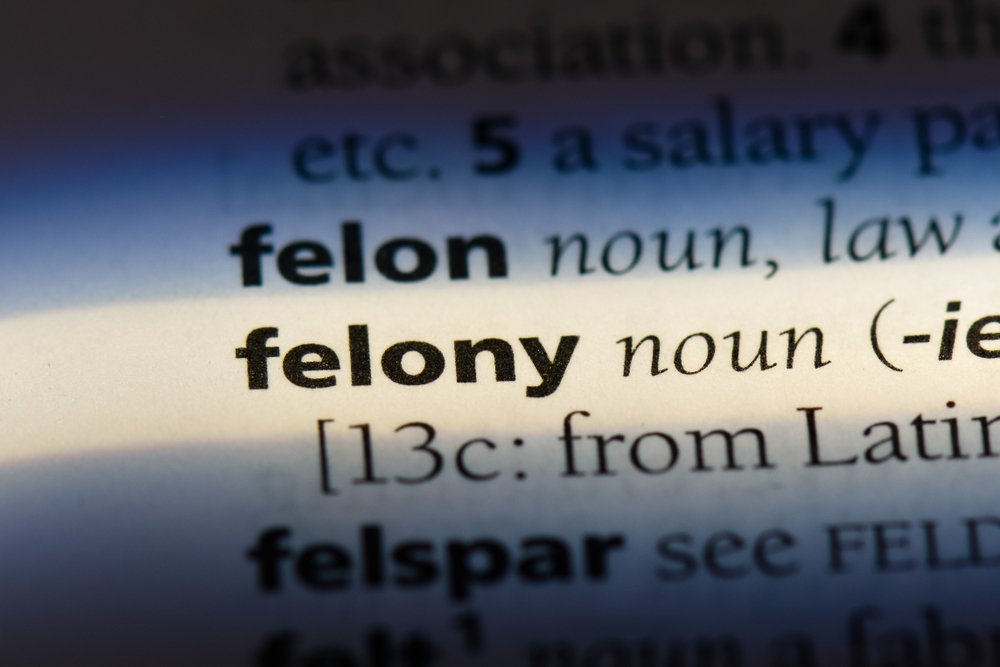
What Types Of PA Crimes Have The Highest Punishment
Being accused of committing any crime in Pennsylvania can be a life-changing event. Your reputation may suffer irreparable harm even if a trial proves your innocence. Troubling as that already is, certain crimes have more severe punishments if you’re found guilty.
Murder
Offenders who receive the harshest punishment in Pennsylvania are those found guilty of murder. The murder of the first degree involves intentional killing. The murder of the second degree may be assessed on an individual if they kill someone in the process of committing a felony. Third-degree murders account for all other types of murders.
Severe penalties are leveled on those who commit the aforementioned crimes.
A first-degree murder charge is regarded as a capital offense in Pennsylvania and is thus punishable by death. Offenders may also be hit with a life sentence. Second-degree murder carries a life sentence. An individual charged with third-degree murder may be sentenced to a maximum of 40 years in prison.
First-Degree Felonies
First-degree felonies also carry significant penalties in Pennsylvania. Anyone found guilty of a first-degree felony in the state can be sentenced to a prison sentence that lasts for 20 years. In addition, they may be ordered to pay a fine of $25,000.
Crimes classified as first-degree felonies in Pennsylvania include
- Rape
- Aggravated assault with a deadly weapon
- Kidnapping
- Arson endangering a person
- Theft of property valued at $500,000 or more
At Brennan Law, our sex crime defense lawyers in Philadelphia can help you navigate the criminal justice process and defend your rights if you’ve been accused.
Second-Degree Felonies
Right behind first-degree felonies in terms of severity are the second-degree felonies. The penalties for second-degree felonies in Pennsylvania are still quite severe.
You may be ordered to serve 10 years in prison if you are found guilty of this offense. Fines are also included as penalties for these crimes. The maximum fine for a second-degree felony is $25,000.
Crimes regarded as second-degree felonies in Pennsylvania include:
- Aggravated assault
- Indecent assault
- Sexual assault
- Involuntary manslaughter
- Theft of property worth at least $100,000 but no more than $500,000
Seeking the counsel of an experienced criminal defense attorney in Philadelphia, PA is a must if you are charged with a second-degree felony.
Third-Degree Felonies
Third-degree felonies also come with severe penalties for offenders in Pennsylvania. The maximum prison sentence for a third-degree felony is seven years. Meanwhile, the maximum fine for an individual who committed a third-degree felony is $15,000.
Examples of crimes regarded as third-degree felonies in Pennsylvania are:
- Possession of child pornography
- Possession of drugs with intent to distribute
- Bribery
- Theft of property with a value of at least $2,000 but no more than $100,000
Contact a Criminal Defense Lawyer Today
If you’re in need of criminal defense in Pennsylvania, call Brennan Law Offices today.
Read More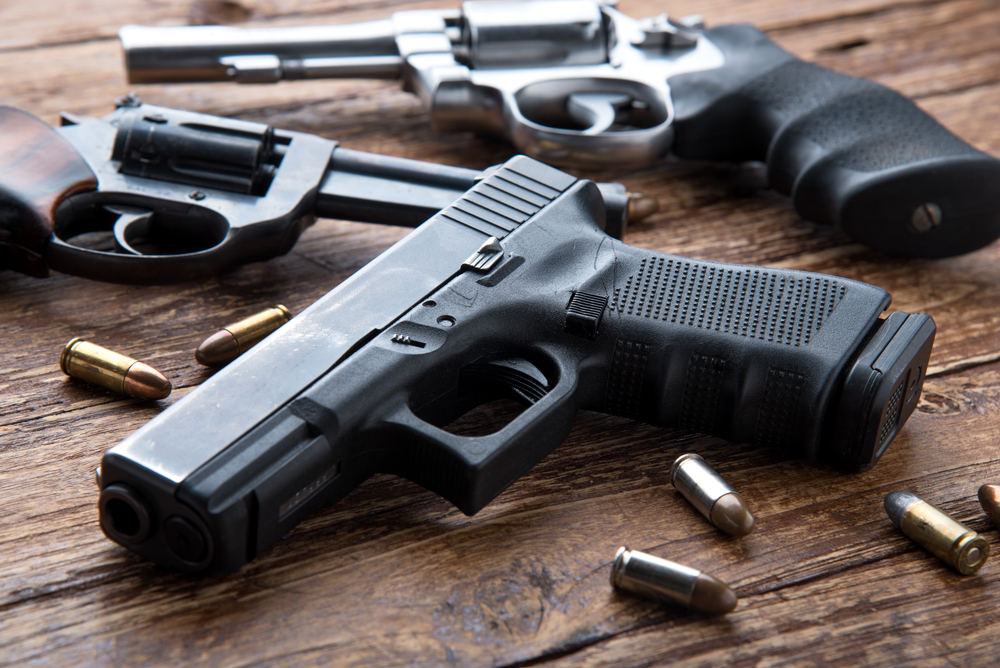
5 Most Common Gun Charges In Philadelphia
Gun charges should never be taken lightly, as they could result in a fine and incarceration. If you’ve been charged with one of these most common gun charges in the city of Philadelphia, a criminal defense lawyer can help.
1. Carrying a Firearm Without a License
Possessing a firearm without a license is a common gun-related crime in Philadelphia. You can be charged with this crime if you are carrying a gun on your person or inside your vehicle.
The severity of the penalties you’ll face for committing this crime will depend on your eligibility for a license. Individuals already eligible for a permit may be charged with a first-degree misdemeanor. If you’re caught with an unlicensed firearm and you’re not qualified to hold a license, the police will likely charge you with a third-degree felony.
2. Carrying Firearms on Public Streets or Public Property
You’re not allowed to wander around public streets and other types of public property in Philadelphia unless you have a valid license. Anyone guilty of committing this crime may be charged with a first-degree misdemeanor.
Exceptions to this law are carved out for specific individuals. Those individuals include but are not limited to members of law enforcement and the military, individuals traveling to or from target practice if their firearms are not loaded, individuals taking unloaded firearms home after legally purchasing them, and more.
3. Illegal Transportation of a Firearm
Transporting a firearm in Philadelphia can become a crime if you’re not legally allowed to own one. Typically, a person on probation for a prior offense is prohibited from possessing a firearm, so transporting one is also considered a criminal offense. You may also be barred from owning and transporting a firearm if you have been charged with certain crimes.
Charges for illegally transporting a firearm could range from a first-degree misdemeanor to a first-degree felony. Work closely with a Philadelphia, PA criminal attorney if you’ve been falsely accused of illegally transporting a firearm.
4. Illegal Sale of a Firearm
Firearm sellers must meet specific requirements to complete their transactions without violating any laws. These requirements include waiting at least 48 hours from when an application for purchase was submitted to deliver the firearm. The firearm should also be wrapped and unloaded when it is delivered.
Anyone guilty of this crime can be hit with charges ranging from a second-degree misdemeanor to a third-degree felony.
5. Illegal Possession of a Firearm with an Altered Manufacturer’s Number
A firearm with an altered manufacturer’s number can prove difficult to trace if it is ever used in a crime. That’s why Philadelphia laws prohibit individuals from possessing firearms with altered serial numbers. You can be hit with a second-degree felony if you are deemed guilty of this crime.
Seek Legal Assistance from a Philadelphia Criminal Defense Attorney
The consequences of gun-related crimes in Philadelphia are not to be taken lightly. Often, gun-related charges are associated with other criminal charges. Whether you need a gun lawyer or a Philadelphia drug lawyer, we’re here for you. Contact us today to get the representation you deserve.
Read More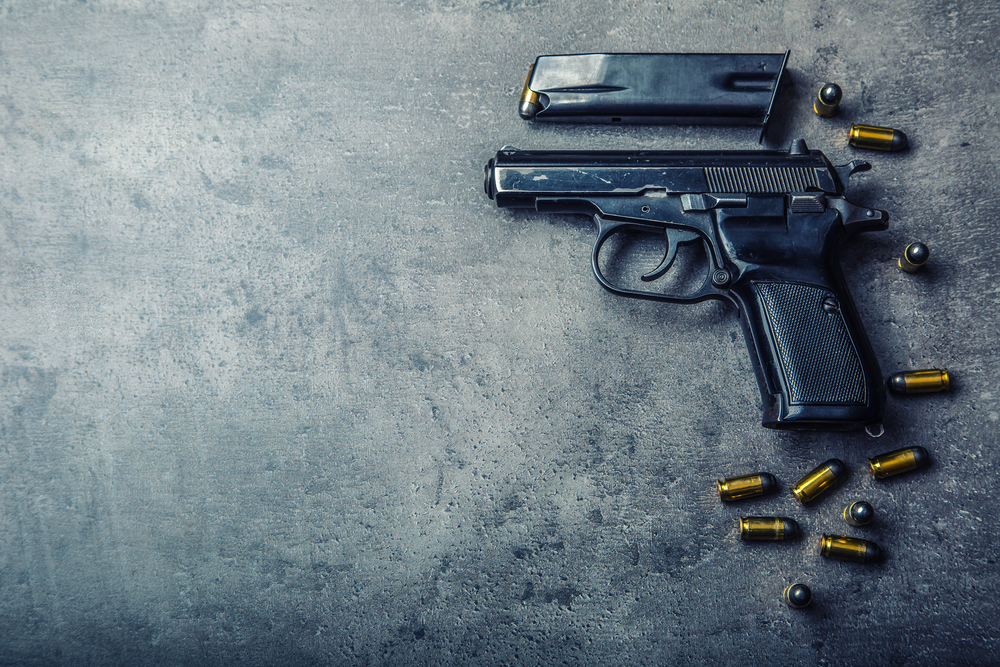
3 Crimes That Increase Charges When You Are in Possession of a Gun
When determining the charges a defendant should face for their actions, it’s important to account for all variables. An investigation could reveal that a gun was involved in the commission of a crime and that element will likely change the case significantly. Three crimes in particular come with more serious penalties if firearms are involved.
Assault
Assault occurs when an individual intentionally acts in such a way that another person may reasonably believe that they are the target of an imminent harmful action or unwanted contact. Even the threat of committing that harmful action or unwanted contact could constitute assault.
An example of assault could be an altercation inside a bar wherein one person pushes a fellow patron. The patron who was pushed could construe that action as assault and pursue charges against the other party. Notably, assault charges can be pressed even if the victim wasn’t injured.
Assault charges become more serious if a gun is involved. At that point, the crime will be regarded as aggravated assault with a firearm. The offending party may have fired a gun in the direction of another person with the intent to harm them. Similar to simple assault, a person can be charged with aggravated assault even if the victim managed to avoid injury.
If you’ve been accused of this crime, you must get in touch with a Philadelphia assault lawyer as soon as possible. Assault charges are no joke so handle them seriously right from the start.
Intimidation
A person may be accused of intimidation if they coerce another party. Someone accused of a violent crime may resort to intimidation to avoid charges. They may pay a visit to a key witness in their case and threaten them with physical harm if they testify.
Whether or not the victim of intimidation feels fear as a result of the defendant’s actions is not going to affect the outcome of the case. The defendant can be found guilty of that crime even if their attempt to intimidate fails. Intimidation becomes a more serious offense if a gun is involved. Firing into the establishment or vehicle occupied by the plaintiff may constitute intimidation.
Robbery
A person may be found guilty of committing a robbery if they take another party’s property by force. Penalties for committing a robbery are already quite serious, but the introduction of a firearm can lead to more dire consequences for the defendant.
An armed robbery conviction typically comes with an extended prison sentence. Hire an experienced criminal defense lawyer so you can protect yourself against a false armed robbery charge.
Reach Out To A Criminal Defense Lawyer Today
Our PA criminal defense lawyers will defend your rights when you’re faced with a charge against you. Contact us at the Brennan Law Offices and allow us to expertly mount your defense.
Read More